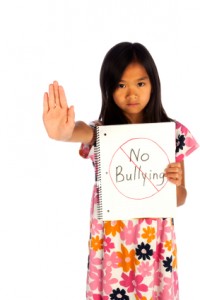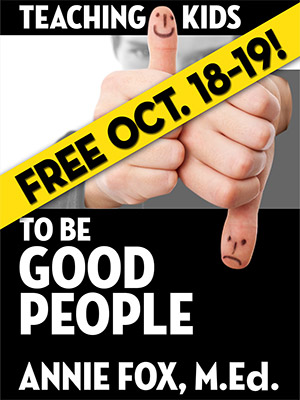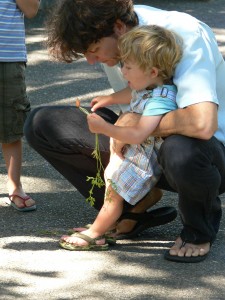|
|
November 27, 2012
I originally wrote this article for TakePart.com where I write a weekly education post. Check out the rest of my articles there.
 Get the message? Got it? Good! Whenever I communicate from a school stage or from my computer, I tell students that our choices should reflect the kind of people we really are. Most of us are good people who care about others. We have a strong sense of fairness. We like to be helpful. We try to understand the other person’s point of view.
Very few of us are truly “mean.” And yet, we often exhibit downright mean behavior (online and off). Whenever I get the chance, I challenge students to think about why that’s the case. I also challenge them to stand up for what’s right, acknowledging that it’s not always easy, especially when no one is standing with you.
Most kids older than the age of five, really do know the difference between right and wrong. But they don’t always do the right thing. Our 21st-century culture of cruelty coupled with a sense of entitlement has taught kids (and many adults) that looking out for anyone but themselves is a sign of weakness.
More: What Every Parent Should Know: How to Help Your Kids Deal With Peer Conflicts at School
Going out of one’s way to be nice to a popular kid, however, will likely earn a student some popularity points of his/her own. But being kind to an “underdog,” especially when popular kids are watching, well, that can be a high-risk move. So can turning down a demand from another student to copy from one’s test paper or refusing to cheat in other ways. And so, kids may feel stuck between their natural inclinations to do the right thing vs. doing whatever it takes to be liked or to get ahead.
We’ve taken a tunnel vision approach to school for long enough, with most of our resources going toward test taking. What’s the point of education without a focus on improving one’s character? Parents and teachers need to make a concerted effort to help students develop the social courage it takes to stand up and be moral leaders. How? Well, here’s an excerpt from my book Teaching Kids to Be Good People, that shows a simple way for us to begin lessons in social courage.
Share this quote with students: “The time is always right to do what is right.” — Martin Luther King, Jr.
Ask, “What do you think about this? Is it true? Too simplistic?”
Talk about a time when you or someone else was being treated unfairly and you stepped up and did the right thing. What happened?
Talk about a time when you didn’t help promote respect, peace, and fairness. What held you back?
Create a challenge to increase acts of social courage. You’ll need paper strips (11 x 2 inches), tape, and a pen.
- Think about a time you stepped up and did the right thing when someone needed a friend or a message of peace. Write a sentence about what you did on a strip of paper and sign your name.
- Connect your strip with someone else’s and create “links” using tape.
- Got more than one act of social courage? Make another link!
Each day keep adding to the chain by actively looking for opportunities to be “brave” in situations where someone needs to do the right thing. As a group, talk about any positive changes you notice in yourself, your family, your school.

November 13, 2012
by Mackenzie Gavel
Mackenzie Gavel is an aspiring journalist and a senior at NYU, with a double major in Journalism and Psychology. Founder of Belittle the Bullies, Mackenzie is also a blogger for CITYist, the online component of City Magazine.
 Mackenzie Gavel, circa the Teen Years Teachers are supposed to be more than educators. They are supposed to be mentors. Unfortunately, that is not always the case. It is a sad day when an adult acts like an adolescent, and an even sadder one when an adolescent finds herself feeling lost and confused in the wake of an adult’s misguided actions.
I am a naturally thin girl. I’ve never had an eating disorder. But in eleventh grade one of my classmates started a rumor that I was anorexic. The lie eventually made its way to the ears of my math teacher, Ms. R. For those of you who read my blog, you know that I was an easy target in high school. To find myself at the face of an ugly rumor was not unusual. But I did not find out about this particular accusation until I sat, crying, and begging for my guidance counselor to believe the truth. The counselor told me that she never had any reason to believe the lies. That was reassuring, but what could I do about the rumor? It’s not easy to prove to people that you don’t have a psychological disorder.
After meeting with my counselor, I angrily confronted Ms. R. Why would she run straight to the counselor before first talking to me? With just a few questions, I would have told her that one of the other girls had been bullying me —forwarding and changing the wordings of my text messages to the boy I liked and spreading rumors like wildfire.
Ms. R never provided an explanation for her actions and in the weeks that followed she was colder toward me, less approachable. Perhaps she wanted to be the friend to the majority, rather than the advocate for the minority. In doing so she took my life and turned it into a nightmare.
To be the mentors young people need, teachers need to think about their actions. They need to have the proper training to handle difficult situations, and they need to remember that they are the guiding forces in students’ lives.
They need to be more like Mr. McTrunugh, another teacher of mine. One afternoon in his class, a student made a negative comment about my hair style. I did not give her the satisfaction of a reaction, but Mr. McTrunugh told the girl that if she said one more word, it would only prove that she, herself, was unhappy and insecure. Now that is a teacher who was unwilling to stay neutral, sit on the sidelines and watch the bullying play out!
Being a mentor sometimes requires you to stand up for kids. You also have to give them a reason to stand up for themselves with dignity and integrity. A teacher’s job is more than just following a lesson plan. It is to be an advocate, the supportive voice that kids so desperately need to hear.
If there is one lesson that I learned from these painful memories, it is that you never have to apologize to anyone for being who you are. Do not let anyone diminish your integrity. Ever.

October 18, 2012
 FREE download for October 18-19, 2012, ''Teaching Kids to Be Good People'' by Annie Fox, M.Ed., My new parenting book Teaching Kids to Be Good People: Progressive Parenting for the 21st Century is receiving enthusiastic reviews. (Always so gratifying after all that work!) To celebrate the book’s launch, and to thank you for your support and ongoing interest in my work…
It’s a gift. No Kindle? No problem! Take the gift anyway. You can read the book just fine on your Mac, PC, iPod Touch, iPad, iPhone, Android, Blackberry, and Windows Phone 7 with this free Kindle Reader app.
I’m confident Teaching Kids to Be Good Peoplewill become an inspirational guide for socially conscious parents and teachers everywhere. Please accept my gift to you and your family.

June 27, 2012
The following is an excerpt from the keynote speech I delivered yesterday at the 18th Annual Character Education Conference in St. Louis.
 Showing we care is a good thing We are human and by definition that means we are vulnerable. Unlike any other creatures, we are aware of our own mortality and so we experience worry and grief. We also know the joys of working together and supporting each other. We celebrate. We nurture. We protect. Because we can be so loving, we sometimes suffer rejection and loss. We trust. We open up and give of ourselves, and sometimes we feel betrayed.
In Teen World, aggressive anger is OK, but real vulnerability, are you kidding me? Teens get clear messages from peers to stay away from vulnerable emotions… especially in public. If you are hurt, don’t show it. If you are disappointed, don’t show it. If you love someone, don’t show it. Slip up and let some vulnerability bleed through the veneer and you are a baby. A wuss. A wimp. You are a pathetic loser.
Wrong! I am a human being.
Teaching kids to be good people means helping them understand and accept the broad spectrum of human emotions. Being afraid is not a cause for shame. Tears are no less acceptable than laughter. It’s all part of the package. If my tears are an honest expression of sadness, grief, joy, why should I hide them from you. Or be embarrassed in front of you?
We are mistaken when we buy into the notion that vulnerability is weakness. Our strength comes from our vulnerability. This may seem counter-intuitive since the word vulnerable derives from the Latin vulnere (meaning “to wound”) A wounded individual is hardly at her strongest, but I see emotions in a different light. Our feelings are our most authentic responses to life. If I am hurt, I cry. If someone is with me, my tears are likely to remind him of sadness he has felt. By responding to me, he acknowledges his own humanity. But if he mocks my tears or tries to push them aside, that indicates he is afraid to respond with compassion. Afraid to show how he has been touched. That he holds himself back from experiencing his full humanity makes me want to reach out and teach, because he is in desperate need of an education.
Unless we can embrace the vulnerable emotions underneath the Anger Lid, it is impossible for us to reach our full human potential. When we feel hurt and choose instead to plaster over our vulnerability with indifference, cool detachment or social aggression, we build walls between us. But if, instead, we are willing to honor our vulnerability, then we can strengthen our connections to other people. Isn’t that exactly what we’re trying to teach our students by creating positive school climates? When we recognize on a deep level that we all experience the same emotions, how can we not empathize with each other? How can we help but reach out in friendship to a person who needs a friend?
Schools that encourage kids to be humane graduate people of good character who are also, good judges of character. When it comes to how we treat each other, the graduates of those schools, have learned to set the bar very high for themselves and for their peers.
 — Older Posts »
| |















